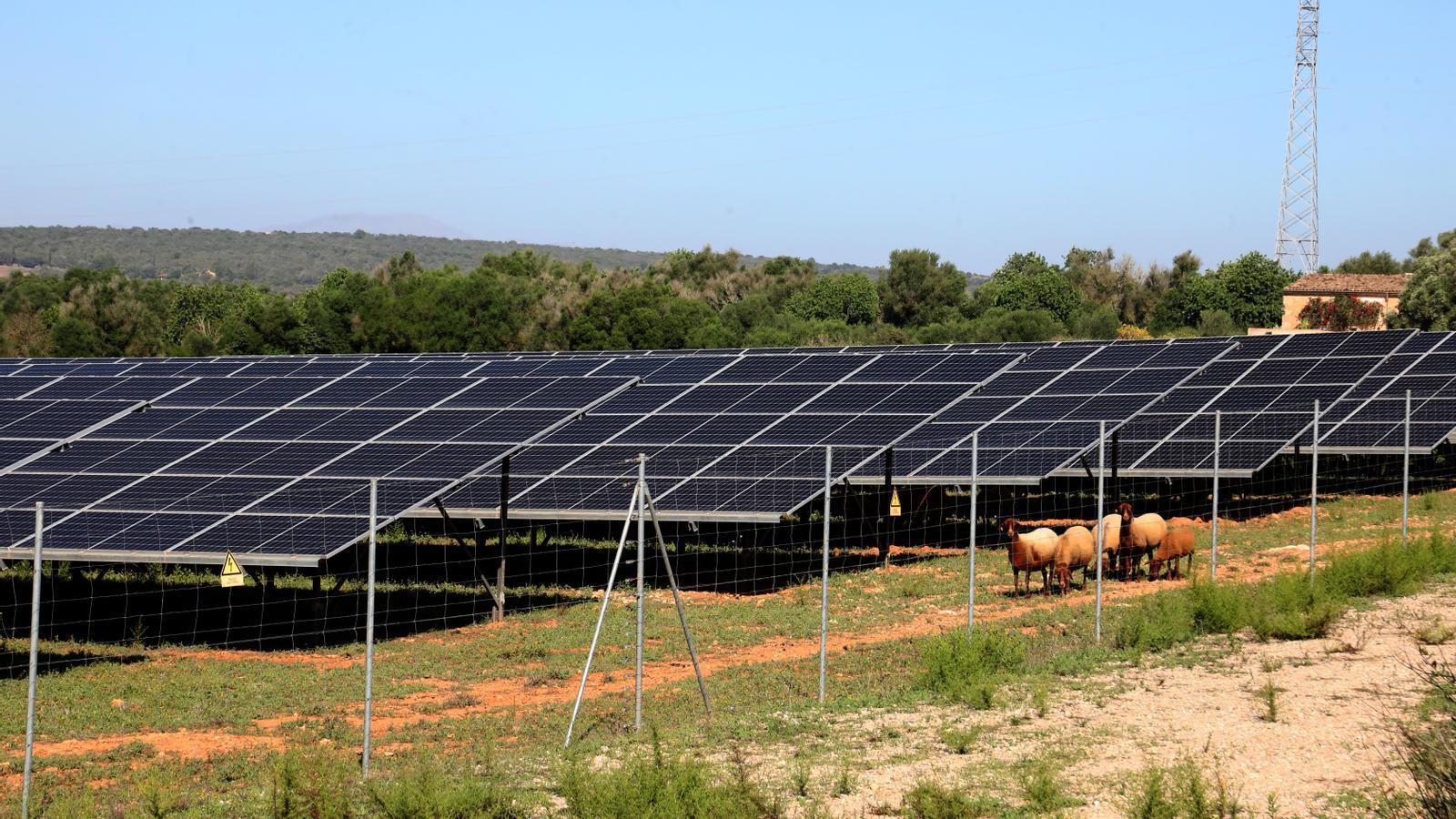Forty mega solar parks will circumvent the ban
The MÁS amendment approved in Parliament to end the express formula for large industrial energy facilities will not prevent the destruction of more than 1,200 hectares of rural land.


PalmThe processing of around forty large solar park projects affecting 1,200 hectares of rural land will move forward despite the Parliament's unanimous ban on eliminating the fast-track program reserved for strategic industrial projects. The measure responds to an amendment by MÁS, which called for a halt to the flood of large-scale projects that had taken advantage of strategic status to obtain the approval of the Governing Council without imposing filters or territorial criteria on their implementation.
"It's a great initiative, but it's coming too late," explains Margalida Rosselló, spokesperson for 'Renewables Yes, But Not Like This'. "We have even identified more projects, and therefore the territorial impact, in our opinion, is close to 2,000 hectares. All of this will not be halted because it is already in progress," she explains.
Among the projects that will not be affected by the new ban—approved within the text of the Land Acquisition Law—are those that already have the Governing Council's agreement to be carried out: Santa Eulalia III (Santa Margalida), Goleta and Xalana (Santanyí), Alten Mallorca (Petra), Son Vent (Marratxí), Llaüt (Muro), and a biomass utilization plant in Manacor.
"We have done something wrong as a society if this vision exists of projects that are, in principle, to improve the environment and reduce emissions," said the Director General of Energy of the Government, Diego Viu, in a recent conversation with ARA Baleares.
The massive implementation of photovoltaic parks in the Balearic Islands has generated a broad debate on their territorial and landscape sustainability. The platform 'Renewables yes, but not like this!' has warned of the accelerated increase in solar power plants on rural land, many of which have been processed without territorial planning and affecting hectares of great environmental, agroeconomic, and landscape value.
According to data from the platform, there are currently 76 photovoltaic power plants operating in the Balearic Islands, occupying 412 hectares of rural land. In addition, there are 89 projects in the pipeline. In total, between those completed and those yet to be implemented, the figure reaches 165 plants.
140 power plants and 1,314 hectares
In Mallorca, the evolution of the model has been especially intense. In 2021, there were 48 photovoltaic parks occupying 273 hectares. By 2023, the figure had already risen to 74 parks and 407 hectares. Added to this are 66 new projects in the pipeline, with an additional 907 hectares. The overall figure on the island is 140 plants and 1,314 hectares without unified planning.
The platform denounces that this model of renewable energy implementation "has been carried out in a haphazard manner and with a high impact on the landscape, agricultural activity, and biodiversity," says Rosselló. Currently, zoning has been initially approved for rural land to prevent projects from being implemented "in any form and wherever they are." "We welcome the measure," says the spokesperson for the organization, although she considers the regulation insufficient.
Diego Viu, for his part, is aware that there has been a lack of coordination between administrations in the past and, therefore, believes that implementation criteria should be further developed. Environmentalists have reiterated their call for spaces such as industrial estates or parking lots to be solarized first: "Not everything can be built everywhere," admits Viu, who emphasizes the need to prioritize degraded spaces to avoid the use of rural land.
The primary sector has also strongly criticized the lack of a model and the impact of solar parks. The organic producers' association Apaema has denounced the "improper" use of rural land for the installation of large photovoltaic parks. According to the organization, these projects occupy productive agricultural land, often of high value, which affects agricultural activity and biodiversity. Apaema has demanded a moratorium on the processing of photovoltaic parks on rural land until suitable areas for their implementation are defined.
Regarding the Balearic Islands' energy needs, the islands are challenged by exponential population and tourism growth over the past two decades. Therefore, according to forecasts from the Directorate General of Energy, achieving full electrification of energy consumption by 2050 will require approximately 4,500 MW of installed renewable energy, which would require the use of approximately 3,000 hectares of land in addition to those already consumed.
The debate remains open, and the exponential growth of photovoltaics in the countryside maintains a strong conflict between meeting energy transition objectives and territorial conservation. The platform and environmental groups' demands are clear: renewables, yes, but with common sense, landscape criteria, and territorial justice, and without the countryside footing the bill.
